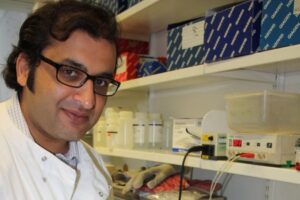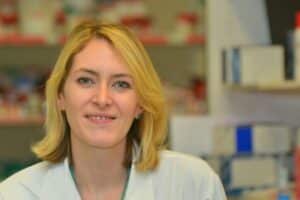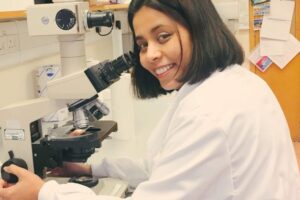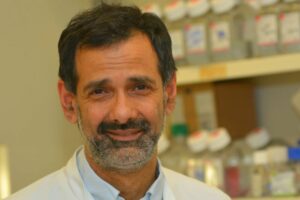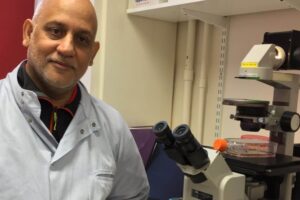Research
Finding ways to protect unborn babies from genetic damage
The genetic mutations that can lead to childhood leukaemia can happen before a baby is even born. Dr Ketan is investigating what could cause – and protect against – genetic damage before birth to help us learn about substances during pregnancy that harm the child’s DNA.
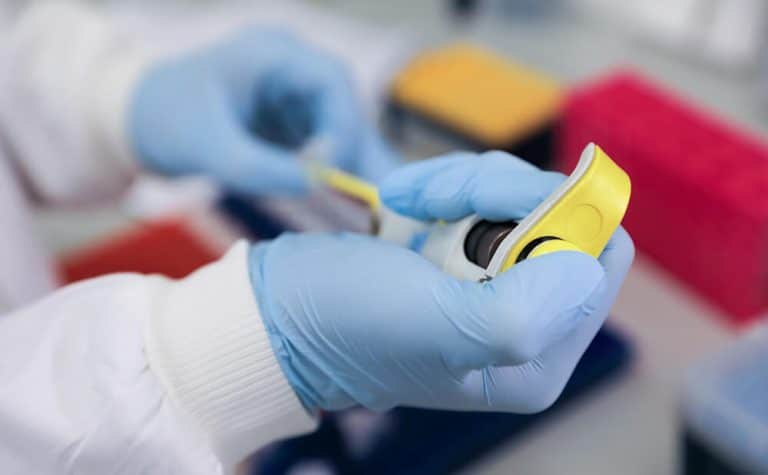
Project Details
- Role of aldehyde metabolism and DNA crosslink repair in in-utero genome stability and leukaemogenesis
- Lead Researcher
- Dr Ketan Patel
- Research Centre
- MRC Laboratory of Molecular Biology
- City & Institution Postcode
- Cambridge, CB2 0QH
- Start Date
- 25 June 2012
- Project Duration
- 5 years
- Grant Amount
- £300,000
Overview
We know that genetic mutations that can lead to the development of childhood leukaemia can occur whilst the child is still in the womb, and that they may be caused by exposure to harmful substances during pregnancy. Dr Ketan and his team have already found that naturally-produced substances called aldehydes can cause genetic damage in the womb. These aldehydes come from dietary sources, such as alcohol, as well as from natural metabolic processes in the body. In healthy children, the body has two layers of protection against genetic damage from aldehydes. The first layer consists of enzymes that break down aldehydes into harmless products. The second layer of protection is a mechanism that repairs damaged DNA. When children are affected by FA, their bodies can’t repair the DNA damage caused by exposure to chemicals including aldehydes.
What difference will this project make?
This complex but essential project will help us understand more about how childhood leukaemia develops. Dr Ketan and his team are looking at how both naturally produced aldehydes and those that come from drinking alcohol intake interfere with fetal development and blood stem cell function. This will help them understand how they may lead to the generation of acute leukaemia. The team will study mice that lack one or both of the layers of protection against aldehydes to determine the effect that either or both defects have on their development. They’ll also study the effects of exposure to alcohol – to establish its effects on blood stem cells and whether exposure promotes the development of blood cancers. The project will help us understand more about how the environment in the womb, and in particular how the mother’s consumption of alcohol may contribute to the development of ALL.
About the Research Team
Dr Ketan Patel’s main research interest is a disease called Fanconi Anaemia (FA). Children with FA have a variety of problems, including developmental defects, bone marrow failure and an increased lifetime risk of leukaemia and other cancers.
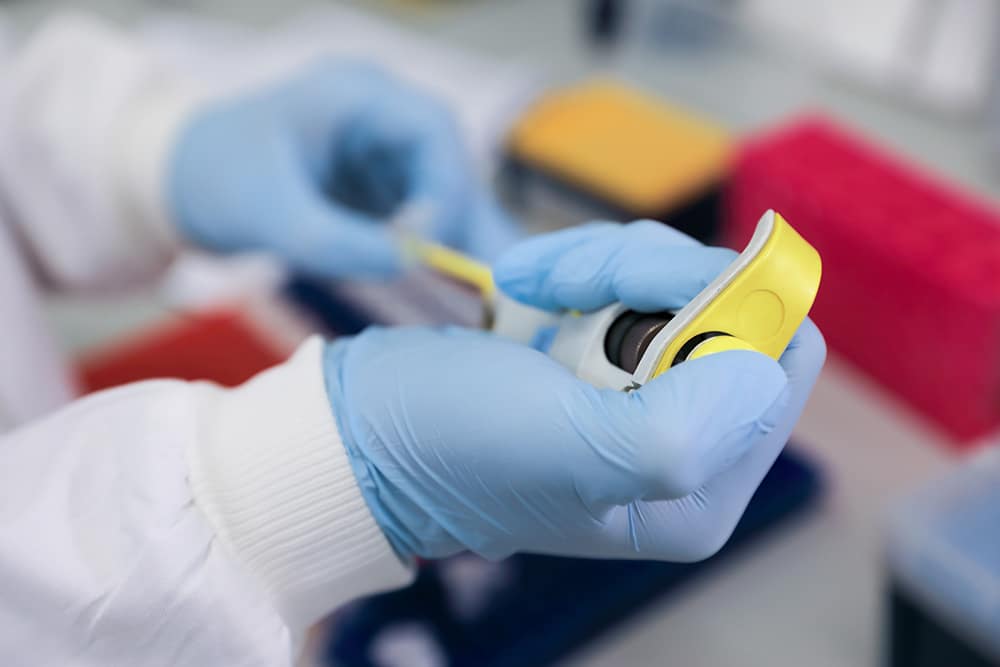
Learn more
The genetic mutations that can lead to childhood leukaemia can happen before a baby is even born. Dr Ketan is investigating what could cause – and protect against – genetic damage before birth to help us learn about substances during pregnancy that harm the child’s DNA.
We’re supporting this crucial project looking at how to protect unborn babies from exposure to substances that may cause genetic damage leading to childhood leukaemia.
Thank you
This research project on genetic mutations has been successfully completed. Your donations allow us to fund ground-breaking research that can improve treatments given to children with cancer. Thank you. Your help allows us to continue to find ways to drive up the chances of survival for children with cancer and reduce the toxic side effects that can affect the rest of their lives.
Other stories
We have lots of information to help you learn more about childhood cancer. From specific cancer types, to treatments and causes.

